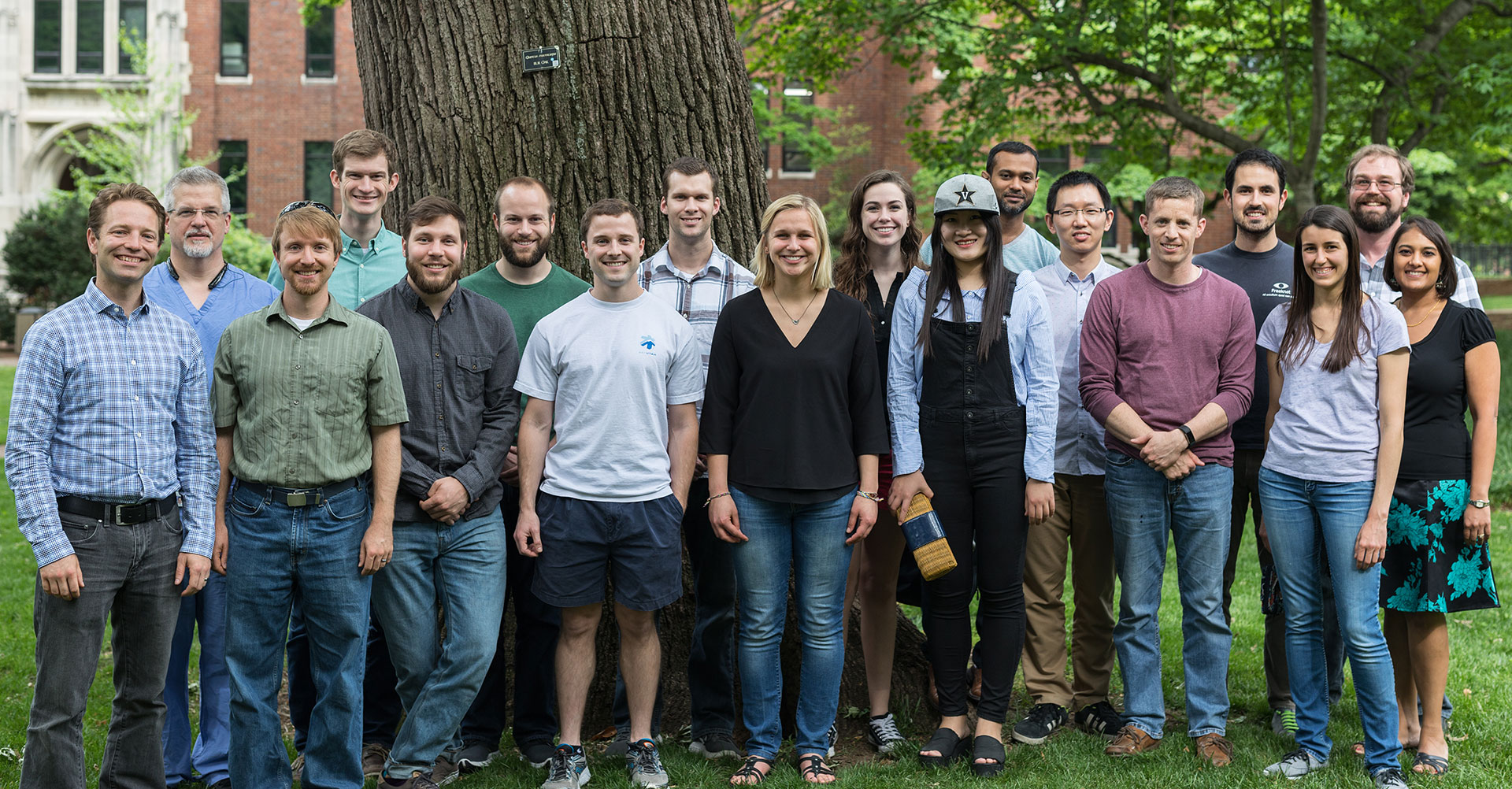Home » News » Medical Engineering and Discovery (MED) Laboratory
Medical Engineering and Discovery (MED) Laboratory
Posted by anderc8 on Wednesday, October 18, 2017 in News, TIPs 2015.

Robert Webster, Associate Professor of Mechanical Engineering and VISE Steering Committee Member
Written by Robert Webster, Associate Professor of Mechanical Engineering and VISE Steering Committee Member
The Vanderbilt School of Engineering’s Medical Engineering and Discovery (MED) Laboratory pursues research at the interface of surgery and engineering. Our mission is to enhance the lives of patients by engineering better devices and tools to assist physicians. Much of our current research involves designing and constructing the next generation of surgical robotic systems that are less invasive, more intelligent and more accurate. These devices typically work collaboratively with surgeons, assisting them with image guidance and dexterity in small spaces. Creating these devices involves research in design, modeling, control and human interfaces for novel robots. Specific current projects include needle-sized tentacle-like robots, advanced manual laparoscopic instruments with wrists and elbows, image guidance for high-accuracy inner ear surgery and abdominal soft tissue procedures, and swallowable pill-sized robots for interventions in the gastrointestinal tract.
PhD students and postdocs working in the lab are responsible for each of our projects.They work on every aspect of the projects, beginning with observing surgeries with clinical collaborators and brainstorming initial ideas. They then help generate early preliminary studies, write grant proposals, build refined systems after grants are secured and experimentally validate their systems. We typically have about 10 PhD students in the lab along with 1-3 postdocs. Undergraduate researchers also often work in the lab – usually about 3-4 per semester and in the summer. They are generally paired with a PhD student or postdoc and assist in the design of a subsystem for the student’s PhD project or on implementing a software module or building a tool for a surgeon collaborator. They are always directly mentored by a PhD student or postdoc.

Members of the MED Lab pose for a photo.
Breakthrough results from the lab include the invention of steerable needles, which are now an active subfield of surgical robotics, and applied in several medical applications. Similarly, we invented concentric tube robots, which are now widely used in the field and are poised to assist in a wide variety of medical applications. We also pioneered the use of bone-attached robots to help deaf people hear again through safely installing cochlear implants. We use magnetic fields to steer the implants, and are building robots inspired by elephants’ trunks and octopus’ tentacles. We are also creating surgical GPS systems to help surgeons better understand where subsurface tumors, blood vessels and nerves are before making incisions.
Learn more about VISE by visiting www.vanderbilt.edu/vise and follow us on our social media channels:
Facebook: https://www.facebook.com/visevanderbilt
Instagram: https://www.instagram.com/visevanderbilt/
Twitter: https://twitter.com/ViseVanderbilt
YouTube: http://vanderbi.lt/viseyoutube
